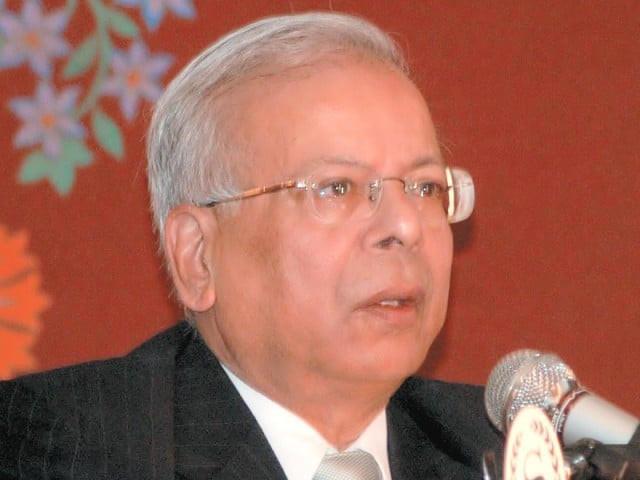Decentralisation of power: ‘Fragmentation, conflict driving force behind urban planning’
Government should devolve power to local institutions, stresses international expert

PHOTO: FILE
He was speaking at a seminar, titled ‘Urban Planning and Institutional Arrangements’ held at NED University on Friday.
Giving the example of Karachi, Hussain said that there are 16 to 17 different entities that possess the key resources of the city. These entities, including water and sewerage authority, building control authority, Karachi Development Authority, Malir Development Authority, are outside the control of Karachi Metropolitan Corporation.
The provincial government, having received devolution of power and authority from the federal government, is safeguarding its autonomy and not devolving it to the local government level, he said. However, the citizens expect water, solid waste disposal, sewage disposal, transport and housing facilities from the elected metropolitan government.
“We have fragmentation of the land in which the metropolitan government can take any action and you have concentration of power in the delivery of the services at the provincial level,” he said.
Role of government
All that is happening in the metropolitan regions of the world can prove to be a game changer on the international scene, said Cardiff University department of geography Prof Paul Taylor.
According to him, poverty, environmental degradation in metropolitan regions and the recent emphasis on climate change has added the extra layer of complexity on the international scene. “This particularly affects planning and operation of national governments,” he said.
There is no doubt that ill-defined distribution of responsibilities, between different tiers of government, need administrative control, he pointed out. The ill-defined distribution of responsibilities leads to backlog in budget spending, higher transaction costs and compromises transparency and accountability.
“I have seen this many times, the national governments often wanting to keep other players - local government, civil society organisations - out of the discussion because it felt that the distribution of power is a zero sum game,” he said, adding that they think involving others would reduce their authority. However, this is a flawed analysis, he claimed.
There are particular problems with metropolitan areas that have issues of transport, solid and liquid waste management, water management, energy crises and others. “They have spillover effects that reach beyond the conventional civic boundaries,” he said.
According to him, this creates a further problem not only for management but also leads to imbalances and inequalities between cities in terms of poverty and infrastructure.
Another problem is that local authorities and district communities tend to be only marginally engaged with planning issues outside their boundaries. The local authorities may even compete and engage in wasteful competition, particularly when there are different political parties at the helm of local authorities, he added.
Published in The Express Tribune, March 26th, 2016.



















COMMENTS
Comments are moderated and generally will be posted if they are on-topic and not abusive.
For more information, please see our Comments FAQ